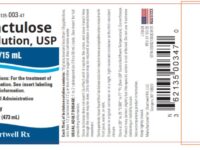Loperamide Indications and Contraindications – Loperamide, commonly known by its brand name Imodium, is a medication primarily used to treat symptoms of diarrhea. As with any medication, understanding its indications (when it should be used) and contraindications (when its use should be avoided) is crucial for safe and effective treatment.
Indications:
Acute and Chronic Diarrhea:
Loperamide is most commonly prescribed to alleviate symptoms of diarrhea. Whether it stems from a viral infection, bacterial imbalance, or other causes, loperamide can help regulate bowel movements by slowing down the movement of the intestines. It works by reducing bowel movements, increasing the time it takes for stool to move through the intestines, thus allowing more time for water and electrolytes to be absorbed.
Traveler’s Diarrhea:
Particularly useful for travelers visiting regions where diarrhea is common, loperamide can offer relief from traveler’s diarrhea. It helps individuals maintain control over bowel movements, enabling them to continue their activities without interruption.
Irritable Bowel Syndrome with Diarrhea (IBS-D):
Loperamide is sometimes recommended for individuals diagnosed with irritable bowel syndrome (IBS) who primarily experience diarrhea as a predominant symptom. By reducing the frequency and urgency of bowel movements, it can improve the quality of life for those suffering from IBS-D.
Contraindications:
Allergic Reactions:
Individuals who have exhibited allergic reactions to loperamide or any of its components should avoid its use. Signs of an allergic reaction may include rash, itching, swelling, severe dizziness, or difficulty breathing. It is essential to consult a healthcare professional if such symptoms occur.
Allergic Reactions:
Loperamide, like any medication, can elicit allergic reactions in certain individuals. Allergic reactions occur when the body’s immune system mistakenly identifies a substance, in this case, loperamide or one of its components, as harmful. This triggers an immune response aimed at neutralizing the perceived threat, which can lead to various symptoms ranging from mild to severe.
Common symptoms of an allergic reaction to loperamide may include:
Skin Reactions: Individuals may develop a rash, hives (urticaria), or itching (pruritus) on the skin. These symptoms typically manifest as redness, raised bumps, or patches of irritated skin. Respiratory Symptoms: Some individuals may experience respiratory symptoms such as wheezing, difficulty breathing (dyspnea), or tightness in the chest. These symptoms can be particularly concerning and may indicate a severe allergic reaction known as anaphylaxis, which requires immediate medical attention.
Swelling: Swelling of the face, lips, tongue, or throat (angioedema) may occur in severe allergic reactions. This can lead to difficulty swallowing, speaking, or breathing, necessitating emergency medical intervention. Digestive Issues: In rare cases, individuals may experience gastrointestinal symptoms such as nausea, vomiting, abdominal pain, or diarrhea as part of an allergic reaction to loperamide.
It is important for individuals who have previously experienced allergic reactions to loperamide or any of its ingredients to avoid using the medication and to inform their healthcare providers of their allergy history. In some cases, individuals may not be aware of their allergic sensitivities until they encounter the medication for the first time. Therefore, it is essential to monitor for any signs of allergic reactions after initiating loperamide therapy. If an allergic reaction occurs after taking loperamide, immediate medical attention should be sought. Healthcare providers can assess the severity of the reaction and provide appropriate treatment, which may include antihistamines, corticosteroids, or, in severe cases, epinephrine (adrenaline) administration.
In summary, individuals with a known allergy to loperamide or its components should refrain from using the medication and explore alternative treatments for diarrhea under the guidance of a healthcare professional. Understanding and recognizing the signs of allergic reactions can help ensure safe medication use and prompt intervention in the event of an adverse reaction.
Acute Dysentery:
Loperamide should not be used to treat diarrhea caused by bacteria or pathogens that invade the intestinal wall, commonly known as dysentery. In such cases, slowing down bowel movements can potentially worsen the condition by allowing the harmful bacteria to proliferate unchecked. Therefore, antibiotic treatment is typically necessary for bacterial infections.
Dysentery, characterized by severe diarrhea containing blood or mucus, is often caused by bacterial or parasitic infections such as Shigella, Salmonella, or Entamoeba histolytica. Acute dysentery typically involves inflammation of the intestines and can lead to significant discomfort and health risks if left untreated. In such cases, the use of loperamide is contraindicated.
Why Loperamide Should Be Avoided:
Masking Underlying Infections:
Loperamide functions by slowing down the movement of the intestines, which helps to reduce the frequency of bowel movements and alleviate diarrhea symptoms. However, in cases of acute dysentery caused by bacterial or parasitic infections, the body’s natural response is to eliminate the infectious agents through increased bowel movements. By suppressing these bowel movements, loperamide may inadvertently mask the symptoms of dysentery, making it difficult to diagnose and treat the underlying infection promptly.
Risk of Complications:
In bacterial dysentery, prompt treatment with antibiotics is crucial to eradicate the causative organism and prevent complications such as dehydration, systemic infection, and the spread of the infection to others. If loperamide is used in these cases, it can delay appropriate medical intervention, allowing the infection to worsen and potentially lead to severe illness.
Potential for Toxic Megacolon:
Dysentery, especially when caused by certain bacteria like Shigella or in individuals with underlying inflammatory bowel diseases, can predispose patients to a condition known as toxic megacolon. Toxic megacolon is a life-threatening complication characterized by severe inflammation and dilation of the colon. The use of loperamide in such cases can exacerbate colonic dilation and increase the risk of perforation, sepsis, and other serious complications.
Proper Management of Acute Dysentery:
When dysentery is suspected or diagnosed, it is essential to seek medical attention promptly. Treatment typically involves:
Antibiotics: Specific antibiotics targeting the causative organism are prescribed to eliminate the infection.
Fluid Replacement: Rehydration therapy is essential to replace fluids and electrolytes lost through diarrhea and prevent dehydration.
Symptomatic Relief: In addition to antibiotics, supportive care may include medications to alleviate symptoms such as abdominal cramping and fever.
In conclusion, loperamide should be avoided in cases of acute dysentery to prevent masking of underlying infections, minimize the risk of complications, and ensure appropriate medical management. Seeking medical attention and following healthcare provider recommendations are crucial for the timely diagnosis and treatment of dysentery, thereby reducing the risk of severe illness and complications.
Bowel Obstruction:
Loperamide is contraindicated in individuals with a suspected or diagnosed bowel obstruction. Since it works by slowing down intestinal motility, it can exacerbate the obstruction and lead to complications. It is crucial to diagnose and treat any underlying causes of obstruction before considering loperamide therapy.
Acute Ulcerative Colitis:
In cases of acute ulcerative colitis, loperamide should be avoided. Ulcerative colitis is an inflammatory condition of the colon, and slowing down bowel movements with loperamide can potentially worsen the inflammation and lead to complications.
Children Under 2 Years of Age:
Loperamide is generally not recommended for children under the age of 2. Diarrhea in young children can be a symptom of various underlying conditions, and it is essential to consult a healthcare professional before administering any medication.
Read also: Paracetamol and Mefenamic Acid Suspension
Loperamide is a valuable medication for managing diarrhea and related symptoms in various conditions. However, its use should be approached with caution, and individuals should be aware of both its indications and contraindications. It is essential to consult a healthcare professional before starting loperamide therapy, especially if there are concerns about its safety or suitability for a particular condition or individual. Always follow the prescribed dosage and instructions provided by a healthcare provider to ensure safe and effective treatment.







